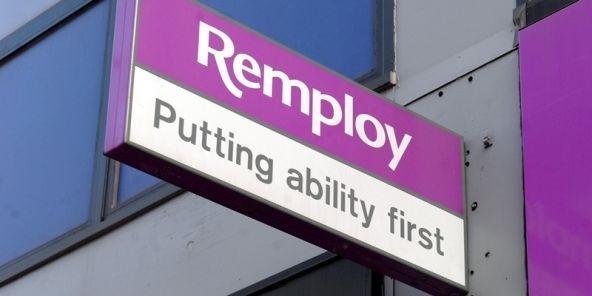The closure of Remploy factories for disabled workers has the makings of a total disaster.
The claim, by Glenrothes MP Lindsay Roy, came amid revelations that just 3% of the 1,200 workers made redundant this year have found new jobs.
Mr Roy is calling for a halt to the entire closure programme, as the future of Remploy sites in Leven, Cowdenbeath and Dundee continue to hang in the balance.
His comments have been backed by Scottish enterprise minister Fergus Ewing and union representatives.
Some 27 Remploy factories across the UK have closed this year, after the UK Government acted on the controversial Sayce report, which recommended that disabled workers would be better off in mainstream employment.
The Fife and Dundee sites were among those considered to have a better chance of attracting private investment and their viability is still being assessed.
An announcement on their fates is expected this year.
Mr Roy said the shock disclosure that only 35 of the redundant workers had so far found work would impact on the self-esteem and health of those still waiting to hear if they would have a job next year.
The MP, who last week called on the government to decide soon to avoid further stress and anxiety for workers, has now called into question the viability of the whole programme.
”This has all the makings of a total disaster,” he said.
”I asked the Minister for Disabled People, Esther McVey, to say exactly how many Remploy workers had found other jobs and she revealed it was just 35, a mere 3% of those made redundant.
”She says there has only been a short period since closure of the factories and that the government expects the number moving into mainstream employment to grow over time. But on the basis of the evidence so far, this is a pretty slim hope.
”No one would disagree with the ethos of everyone working side by side, be they able-bodied or disabled in some way, and it’s something I wholeheartedly approve of.
”However, in reality it is not always possible, and removing the alternative of sheltered employment such as Remploy removes choice and opportunity for the very people it is supposed to benefit.”
He added: ”Many of the people who lost their jobs will have been employed at Remploy for most, or indeed, all their working lives – that is certainly true here in Fife.
”They will have little or no experience of working in mainstream employment and, on the basis of the government’s figures, are so far finding it very difficult to find other jobs.
”Inevitably, this will impact on the self-esteem, confidence and health of people who are already disadvantaged in some way.”
Fergus Ewing said he had asked the DWP to take a step back and look again at their plans to go ahead with the second round of closures.
”That will give us all time to consider the best way forward for the remaining Remploy factories and take on board the lessons that can be learned from phase one of the process,” he said.
Colin Cuthbert, a shop steward with Community union based at Remploy in Leven, said he would support a stop to the closure programme.
”Phase one is almost complete and it has been a shambles,” he said.
”The promised support from the Benefits Agency to be paid for by the DWP has never appeared. People have been leaving and not getting any support.
”We would prefer if they called a halt to the programme just now and had a look at how phase one was conducted and learned from their mistakes.”
